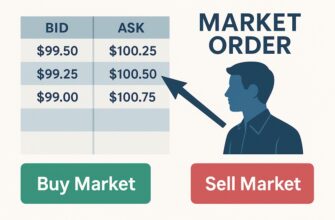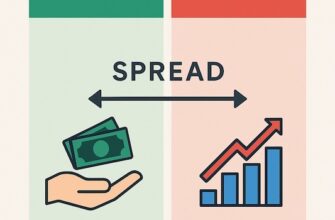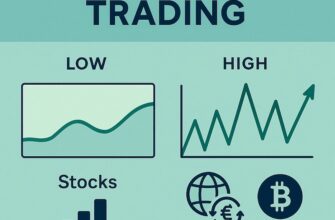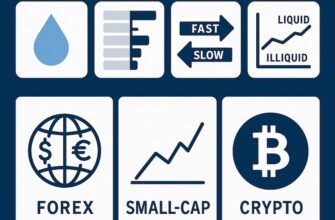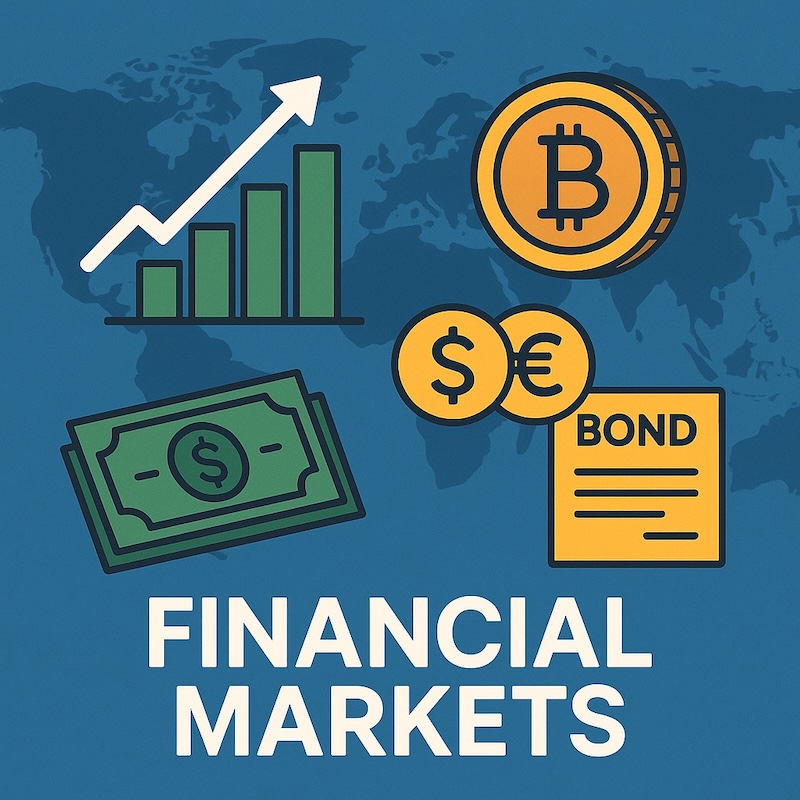
Understanding financial markets is essential for anyone who wants to grasp how the global economy functions. Whether you are saving for retirement, trading stocks, or simply observing the news, financial markets affect your daily life more than you might realize. In simple terms, these markets are platforms where buyers and sellers come together to trade assets—ranging from stocks and bonds to currencies, commodities, and even cryptocurrencies. But each market has its own rules, participants, and purposes.
This article offers a clear breakdown of what financial markets are, why they exist, the different types of markets, and who participates in them. We’ll also look at concrete examples to make the topic easier to understand.
- Definition of Financial Markets
- Types of Financial Markets
- Stock Markets
- Forex Markets
- Commodities Markets
- Bond Markets
- Cryptocurrency Markets
- Why Financial Markets Exist
- Capital Raising
- Hedging Risk
- Speculation and Profit
- Examples of MarketParticipants
- Retail Investors
- Institutional Investors
- Governments and Central Banks
- Corporations
- Key Takeaways
- FAQ
- What are the 4 main types of financial markets?
- Which is the largest financial market?
- Why are financial markets important?
- Are cryptocurrencies part of financial markets?
- Who participates in financial markets?
Definition of Financial Markets
A financial market is a structured environment where individuals, institutions, and governments can trade financial assets. These assets can include equities (stocks), debt instruments (bonds), currencies, commodities like oil or gold, and digital tokens such as cryptocurrencies.
The key feature of a financial market is that it creates a mechanism for price discovery—the process by which supply and demand determine the value of an asset. Without markets, it would be nearly impossible to know what a fair price for a stock, bond, or currency should be.
Think of a farmers’ market: sellers bring their produce, buyers arrive with money, and prices are set based on how much people are willing to pay. Financial markets operate on the same principle, but instead of apples and oranges, they trade stocks, bonds, or euros.
Types of Financial Markets
Financial markets come in several forms, each serving a different purpose. Let’s break down the main categories and their unique characteristics. Learn more in our guide to types of assets.
Stock Markets
The stock market is perhaps the most widely recognized financial market. It allows investors to buy and sell shares of publicly listed companies. When you purchase stock in Apple, Microsoft, or Tesla, you become a partial owner of that company.
- Examples: New York Stock Exchange (NYSE), Nasdaq, London Stock Exchange (LSE).
- Purpose: To raise equity capital for businesses and give investors opportunities for growth.
- Note: Stock markets can be further divided into primary markets (where companies issue new shares via IPOs) and secondary markets (where existing shares are traded among investors).
Forex Markets
The foreign exchange market (Forex) is the world’s largest financial market, with daily trading volume exceeding $7 trillion. It is where currencies are traded—dollars for euros, yen for pounds, and so on.
- Examples: Interbank Forex market, retail trading platforms like MetaTrader or cTrader.
- Purpose: To facilitate international trade, tourism, and investment. Without Forex, cross-border transactions would be nearly impossible.
- Unique Feature: The Forex market operates 24 hours a day, five days a week, across global financial hubs.
Commodities Markets
Commodities markets deal with raw materials such as oil, natural gas, gold, silver, wheat, and coffee. These markets are vital for hedging risks and ensuring stable prices for essential goods.
- Examples: Chicago Mercantile Exchange (CME), London Metal Exchange (LME).
- Purpose: Producers (like farmers or oil companies) and consumers (like airlines or food manufacturers) use these markets to lock in prices and manage risk.
- Trading Methods: Commodities can be traded through spot markets (immediate delivery) or futures contracts (agreements to buy/sell at a future date).
Bond Markets
The bond market, often called the fixed-income market, allows governments and corporations to borrow money by issuing debt securities. Investors purchase these bonds in exchange for regular interest payments and the promise of repayment at maturity.
- Examples: U.S. Treasury bonds, municipal bonds, Eurobonds.
- Purpose: To finance projects, government budgets, and corporate expansion.
- Risk/Return Profile: Bonds are generally considered safer than stocks, but they usually offer lower returns.
Cryptocurrency Markets
A relatively new addition, cryptocurrency markets enable the trading of digital assets like Bitcoin, Ethereum, or stablecoins pegged to traditional currencies.
- Examples: Binance, Coinbase, Kraken.
- Purpose: Initially designed as decentralized alternatives to traditional money, crypto markets now also function as investment and speculative platforms.
- Unique Feature: These markets are open 24/7 and operate outside the traditional banking system.
Why Financial Markets Exist
Financial markets are not random inventions; they serve specific functions that keep the economy running smoothly.
Capital Raising
Companies and governments need funding to grow, build infrastructure, or finance public projects. By issuing stocks or bonds, they can raise capital directly from investors instead of relying solely on banks.
Hedging Risk
Airlines might buy oil futures to protect themselves from fuel price spikes, while farmers may lock in wheat prices to ensure stable revenue. Financial markets provide instruments for managing risk through hedging.
Speculation and Profit
Speculators add liquidity by betting on price movements. While speculation is sometimes criticized, it is an integral part of financial markets because it ensures that buyers and sellers can find counterparties quickly.
Examples of Market Participants
Who exactly uses financial markets? The answer is broad—virtually every actor in the economy participates in some way. Retail investors and institutional players often choose between trading and investing strategies, depending on their goals and risk tolerance.
Retail Investors
These are individual traders and savers. When you buy shares through a brokerage app or purchase government bonds, you are participating as a retail investor.
Institutional Investors
Large organizations such as pension funds, hedge funds, mutual funds, and insurance companies. Their trades often involve billions of dollars and can influence markets significantly.
Governments and Central Banks
Governments issue bonds to fund national budgets, while central banks intervene in Forex markets or adjust interest rates to control inflation and stabilize their economies.
Corporations
Firms raise equity through stock markets, issue bonds for financing, and sometimes use derivatives for hedging currency or commodity risks.
Key Takeaways
- Financial markets are platforms where assets such as stocks, bonds, currencies, commodities, and cryptocurrencies are traded.
- They play a vital role in price discovery, capital raising, risk management, and speculation.
- There are different types of financial markets—each serving unique purposes but interconnected globally.
- Market participants range from small retail investors to massive institutional funds and governments.
- Understanding financial markets is crucial for anyone who wants to make informed decisions about investing, saving, or managing risk.
FAQ
What are the 4 main types of financial markets?
The four core markets are stocks, bonds, commodities, and Forex. Today, many also include cryptocurrency markets as a fifth major category.
Which is the largest financial market?
The Forex market is the largest, with daily volumes exceeding $7 trillion, making it more liquid than any other market.
Why are financial markets important?
They provide a mechanism for raising capital, managing risk, enabling global trade, and offering investment opportunities for both individuals and institutions.
Are cryptocurrencies part of financial markets?
Yes. While relatively new, cryptocurrency markets are now considered part of the broader financial ecosystem, offering digital alternatives to traditional assets.
Who participates in financial markets?
Participants include retail investors, institutional investors, corporations, governments, and central banks.

